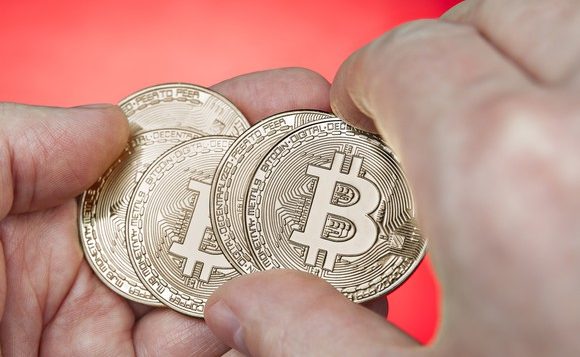When some investments seem to be soaring, many people get excited — and scammers target them. Beware of these scams.
We’re living in wacky times — with a growing mania over bitcoins and other cryptocurrencies. Consider, for example, the fact that the Long Island Iced Tea Corp. changed its name to the Long Blockchain Corp. — and that after doing so its stock price nearly quadrupled. (Blockchain is a bitcoin-related technology and buzzword.)
Why such fuss? Well, bitcoin traded for less than $1 apiece back in 2011, but it neared $20,000 by December 2017. That’s not only causing many people to jump into volatile and risky investments, but it’s also leading to bitcoin and cryptocurrency scams.
Bitcoin, in a nutshell
Bitcoin, which made its debut in 2009, is a digital or virtual currency, not issued by any government, as most currencies are. It exists online and permits payments between parties without a middleman such as a bank. It’s a decentralized electronic payment system, not managed by any single entity the way Mastercard, Visa, or PayPal Holdings oversee their respective payment networks.
Bitcoin is managed by using public and private “keys,” which are long strings of numbers and letters created by mathematical encryption algorithms. To use bitcoin, you need to buy bitcoins on one of many exchanges and store them in a digital wallet app. Many retailers like accepting bitcoin because they’re not charged a processing fee, as they are with credit cards. On the other hand, there is relatively little regulation of bitcoins, and the system is vulnerable to hacking. The value of a bitcoin is very volatile, too.
There’s a fixed supply of bitcoin, which helps maintain its value, but its skeptics remain, well, skeptical. Charlie Munger, for example, who is Warren Buffett’s business partner and a hugely successful investor, has called bitcoin “total insanity,” warning:
You know it is one thing to think gold has some marvelous store of value because man has no way of inventing more gold or getting it very easily, so it has the advantage of rarity. Believe me, man is capable of somehow creating more bitcoin. … They tell you there are rules and they can’t do it. Don’t believe them. When there is enough incentive, bad things will happen.
Bitcoin and cryptocurrency scams
Given the easy way that many people are getting rich on bitcoin (so far), it’s not surprising that many scams are under way to prey on that excitement and greed. The folks at the Financial Industry Regulatory Authority (FINRA) have listed many risks of cryptocurrencies. Here are six of them:
- Digital currency such as bitcoin is not legal tender. No law requires companies or individuals to accept bitcoins as a form of payment. Instead, bitcoin use is limited to businesses and individuals that are willing to accept bitcoins. If no one accepts bitcoins, bitcoins will become worthless.
- Platforms that buy and sell bitcoins can be hacked, and some have failed. In addition, like the platforms themselves, digital wallets can be hacked. As a result, consumers can [lose money]— and have. …
- Bitcoin transactions can be subject to fraud and theft. For example, a fraudster could pose as a bitcoin exchange, bitcoin intermediary, or trader in an effort to lure you to send money, which is then stolen.
- Unlike U.S. banks and credit unions that provide certain guarantees of safety to depositors, there are no such safeguards provided to digital wallets.
- Bitcoin payments are irreversible. Once you complete a transaction, it cannot be reversed. Purchases can be refunded, but that depends solely on the willingness of the establishment to do so.
- In part because of the anonymity bitcoin offers, it has been used in illegal activity, including drug dealing, money laundering, and other forms of illegal commerce. Abuses could impact consumers and speculators; for instance, law enforcement agencies could shut down or restrict the use of platforms and exchanges, limiting or shutting off the ability to use or trade bitcoins.
More recently, FINRA has issued a warning about cryptocurrency scams. They note that such scams often take classic forms — such as through telemarketing phone calls, spam emails, press releases, online posts, and social media. Know that while you can buy into various cryptocurrencies themselves, you can also buy or sell shares in various cryptocurrency-related companies, many of which are penny stocks. Penny stocks are one of many reliable ways to lose money, and they’re frequently used in “pump-and-dump” schemes, where a scammer will buy shares of a penny stock and hype the company, perhaps online or via emails. Then, after gullible buyers snap up shares, sending the stock price up, the scammer will sell his shares, sending the stock sharply down and wiping out the scam’s victims.
FINRA urges investors to be careful, not falling for cold calls pushing any investments. They might sound very tempting, especially when shares seems wildly inexpensive (penny stocks, again), but hanging up is often best. Remember that purported investment opportunities that sound too good to be true usually are, and the true good ones don’t need strangers hawking them over phone calls and online.
Read more at:
https://www.fool.com/investing/general/2017/12/28/beware-of-bitcoin-and-cryptocurrency-scams-like-th.aspx







